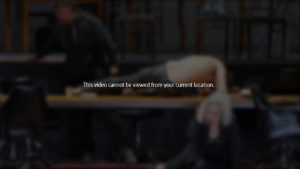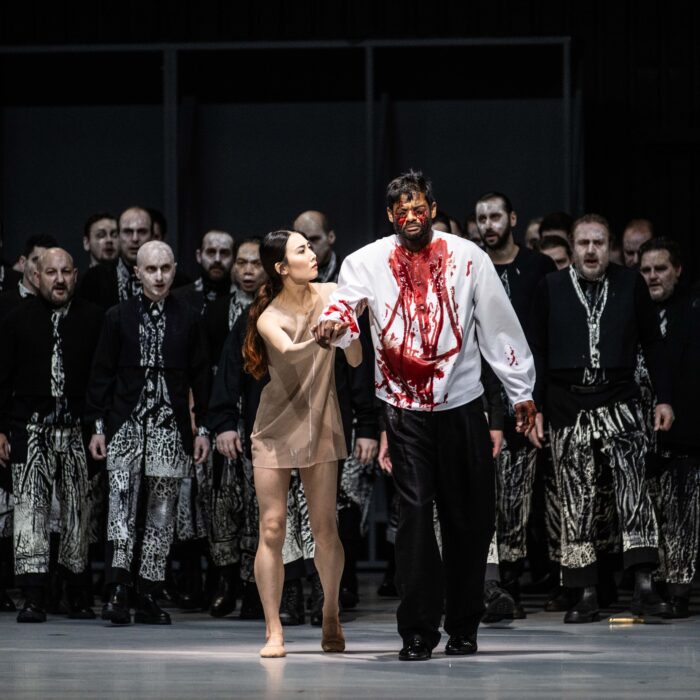
Criticism on Fridays: Could Jonas Kaufmann Defeat the Regime?
Kirill Serebrennikov’s New Production of ‘Parsifal’ as the Echoes of the Putin’s Political Repression, That Will Never Reach Russia
By Polina LyapustinaEvery Friday, Polina Lyapustina delivers a short essay on some of the most essential topics in the industry with the intent of establishing a dialogue about the opera world and its future.
This week, many of you, I guess, got a chance to watch then new production of “Parsifal” staged by Kirill Serebrennikov at the Wiener Staatsoper.
I also got a chance to checn it out and once I was finished, my only thought was — now, it’s History. The funny substance that changes every time you move your perspective an inch. And that will be rewritten to please every new ruler or the social order. I could barely find anything about liking or disliking this performance, only the head full of thoughts, details, and symbols. While it usually characterizes a truly Wagnerian story, this time that wasn’t the case.
The most complex art form, opera, was recently challenged to combine and express the topics that normally hardly get along together. Russian politics and the music of Wagner, spiritual legends and modern reality, prisons, and talents of the world stars were merged together and presented on the Viennese stage and streamed to the whole world online.
A very complex and certainly dominating visual component created by the director captures the audience straight from the prelude, and only later I realized that even with the ultimate star cast on stage, I kept seeing the prison first (even when the set changed). And this — prison — is what people, both opera-lovers and critics, would note, first of all, discussing the premiere.
But the ways they would decode this symbol are very different. Those who concentrate on the news, would talk about Navalny and what’s happening in Russia today — the stories occurring long after the director’s vision was set and that certainly helped promote the new production. Others would reflect on Serebrennikov’s own imprisonment, another front-page story, yet the case is too narrow for this legendary plot and epic musical part.
And only a rare viewer would overlook the popular headlines, step back and combine the walls and lattices with the society inside, and see that the most relevant and reflective part of this interpretation is hidden there.
In the Russia of my childhood, there was a very popular joke based on the old folk wisdom, “No one can harm Russia except Russia itself.” In the dashing 90s, people tried to find some calmness in this silly confidence that no one else would harm them. Making jokes about their own mistakes was a way to come to terms with suddenly found freedom. A state that was so unusual for a country that voluntarily changed the millennium of tsarism for the century of dictatorship.
But already in the 2000s, the country returned on the beaten track. And Kirill Serebrennikov has a lot to say about this matter. Not because he was trying to build a new theater in traditional Russia for decades, worked abroad, and was easily criticized for his progressive views; and not because he became a victim of political persecution, but because like many others he has seen this terrifying, blind confidence that Russia can only be ruled by the iron fist in the gases of compatriots.
Could the old story in the relevant context, accompanied by the powerful music and striking performance of amazing artists become a reflection of life in the biggest country on the globe? How enlightening it might become when streamed online to the entire world?
Could Jonas Kaufmann’s Parsifal, revised, brought in line with their reality, change the mind of people of the entire nation, open the exit from their prison too?
The power of the art, artistic and musical talents on the stage and in the pit, the elaborated vision of the director freely streamed all over the world gives hope that this might be possible. It mught however be yet another modern force that destroys this weak and certainly idealistic hope. The Market rules today define who belongs to that whole world. And the Russian audience doesn’t seem to be a part of it.
The major world premiere of the production of Russian director Kirill Serebrennikov, which in either interpretation would be related to the problems of his homeland, is not available to watch in Russia. Simply because nobody paid for the rights.
While people were afraid of a new iron curtain falling, they simply missed the fact that a simple prison gate is closed for them (from the inside), and it happens not in the political or economical but in the cultural fields which are supposed to reflect, liberate, and unite people of the world. But how could the music, ideas, and talents lead people out there, if they simply cannot get inside?


